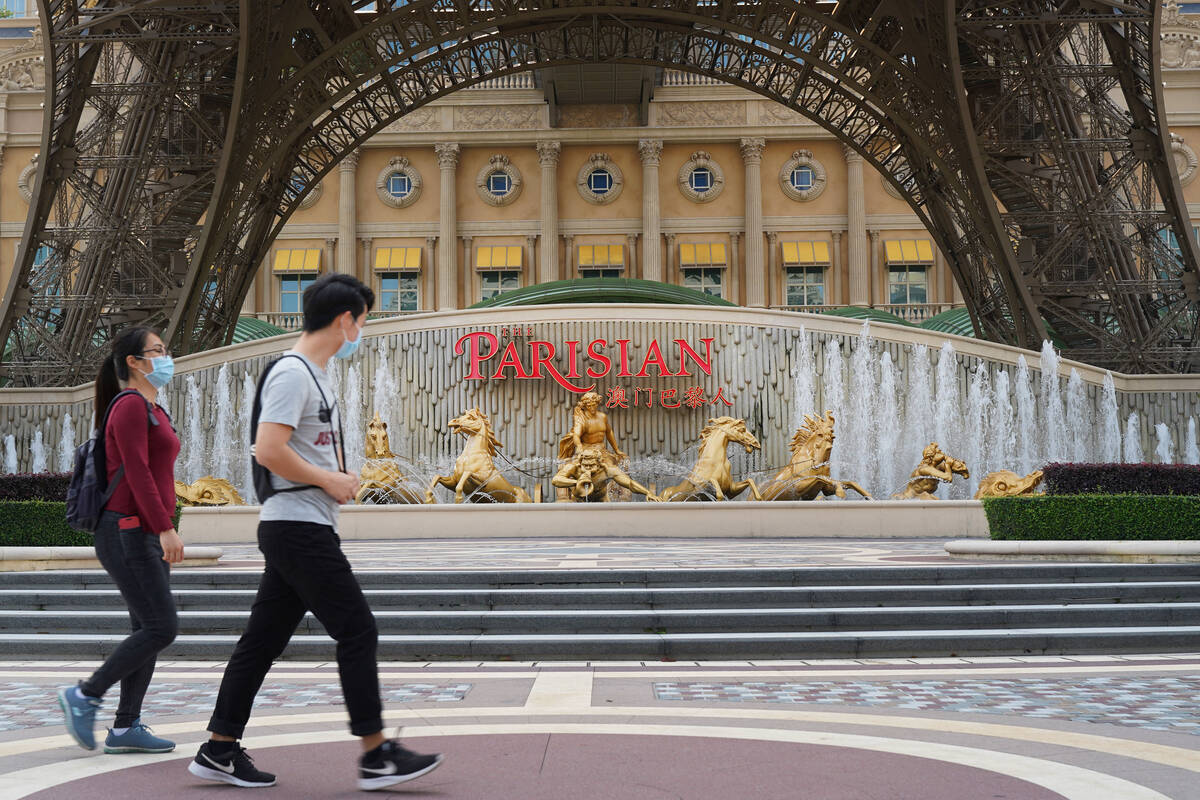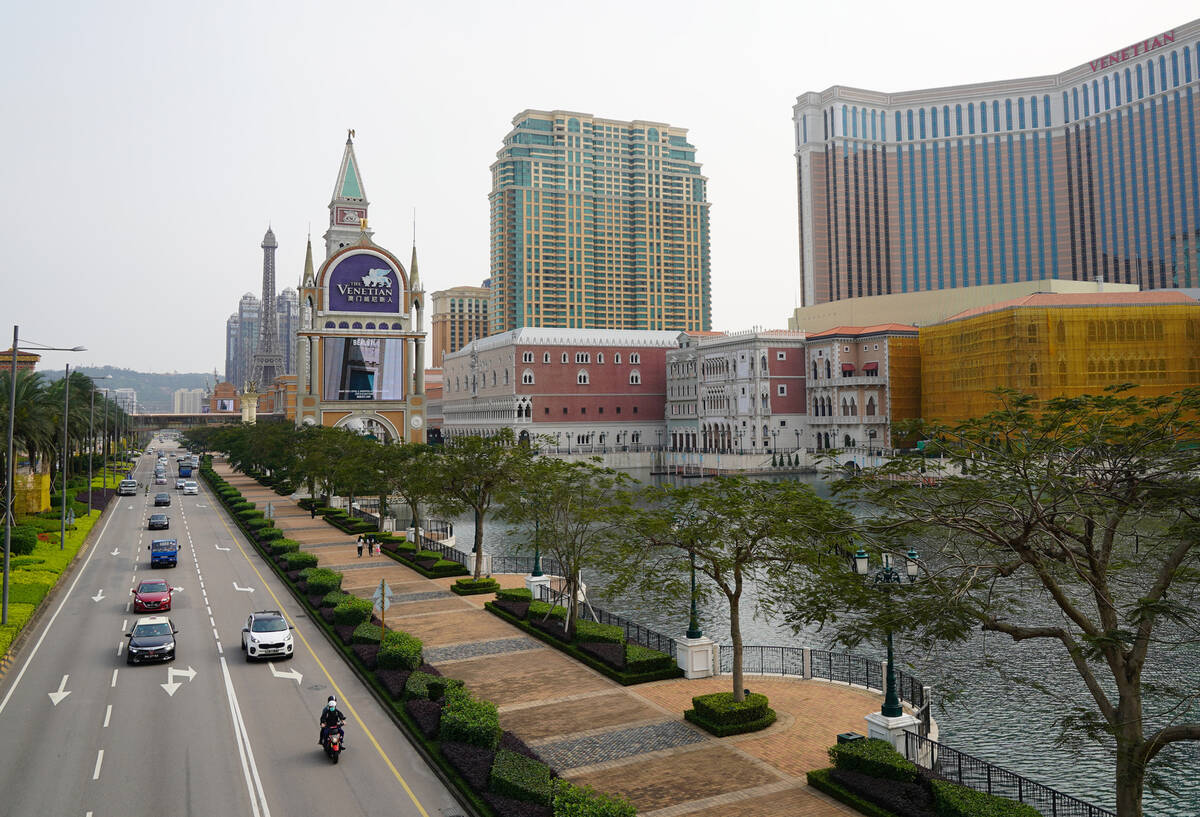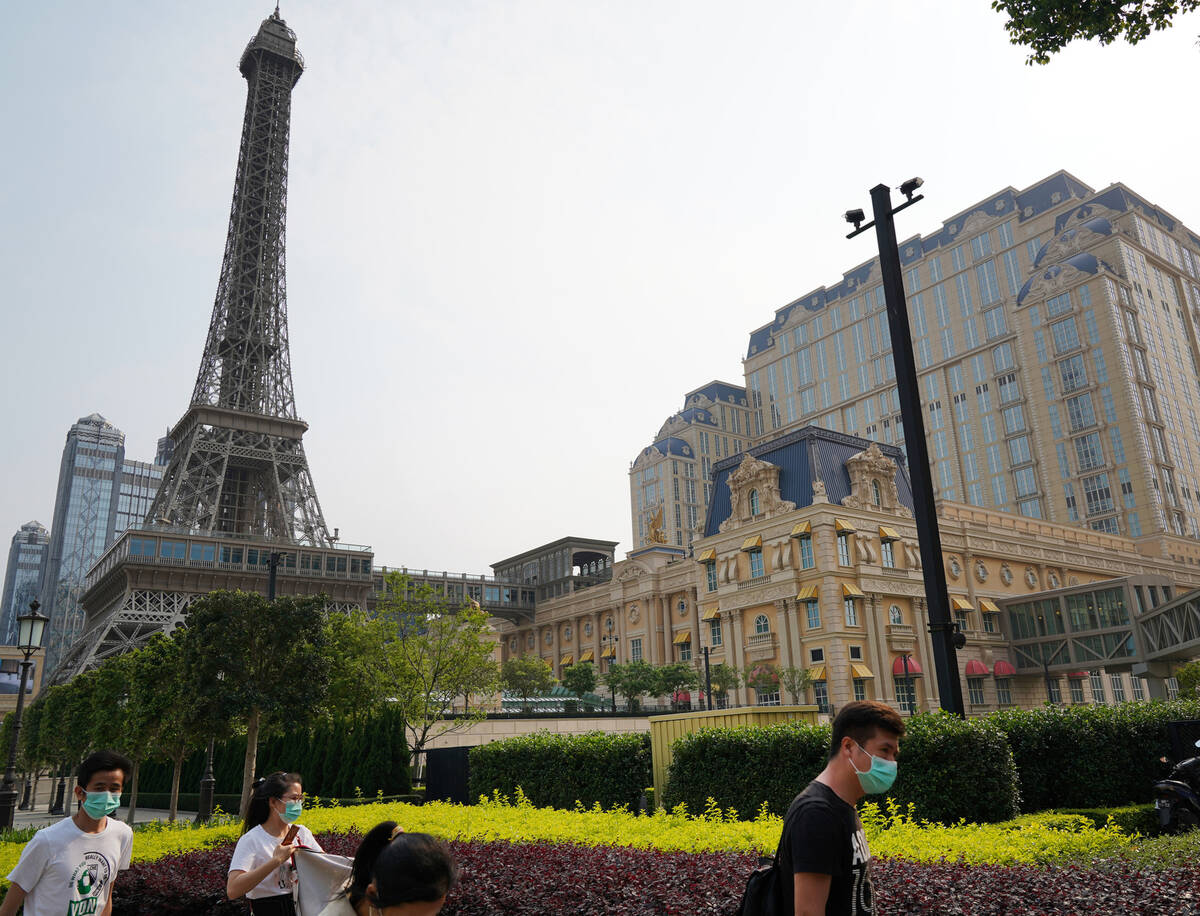Gaming industry on a roll but challenges remain amid pandemic
The theory gaming industry analysts hypothesized months ago appears to be holding true: Companies operating on the Strip are struggling more than their regional counterparts.
Third-quarter earnings reports wrapped up late last month and the numbers show there’s still a way to go before we can say the pandemic is behind us, even as Nevada continues to break records for monthly gaming win.
Of the 23 publicly traded companies within the Review-Journal’s orbit of gaming and tourism-related business coverage — casino companies, airlines, real estate investment trusts and tourism-related operations — six showed net losses for the quarter.
All of the results are explainable but also provide some intrigue as to what’s going to happen in the fourth quarter, especially with a parade of resort ownership changes on the horizon.
Fresh news came two weeks ago when the Nevada Gaming Control Board reported another billion-dollar-plus month of gaming win in October. That’s eight straight months. The state’s casinos are on a revenue roll.
This month, the Control Board recommended approval of a licensing application by the San Manuel Band of Mission Indians to acquire the Palms from Red Rock Resorts for $650 million.
Still, some companies continue to struggle 1½ years since casinos were shut down for 78 days in March 2020. Companies showing third-quarter losses were Las Vegas Sands Corp., Wynn Resorts Ltd., Caesars Entertainment Inc. and Bally’s Corp., which plans to manage the Tropicana.
Two others with net losses were equipment manufacturer PlayAGS and MSG Entertainment Inc., which technically reported its first-quarter 2022 earnings. MSG is heavily involved in the Las Vegas entertainment scene as the owner of the Tao and Hakkasan nightclubs and is building the $1.9 billion MSG Sphere at The Venetian.
Some of the common denominators of those companies are that three of them have Strip assets (Sands, Wynn and Caesars), two have operations in Macao (Sands and Wynn), and two are diversified as regional operators across the country (Bally’s and Caesars).
Brendan Bussmann, director of government affairs for Las Vegas-based Global Market Advisors, said casino and tourism companies are going to have to watch out for economic problems affecting other industries.
“While we have seen record gaming win over the last several months, some of the current trends in other industries are cautionary wins for what may be on the horizon,” Bussmann said. “With inflation, supply chain issues, workforce issues, rising fuel costs and general confidence in the economy foundering, this may delay our recovery as this cuts into discretionary spending.”
For months, analysts have told us the Strip probably would be one of the last areas to recover from the pandemic and the regional companies would flourish.
Locally, Red Rock Resorts, operators of Station Casinos, and Boyd Gaming Corp., a downtown Las Vegas-locals-regional gaming hybrid, both show strong balance sheets and had good quarters.
Two publicly traded airlines with heavy interest in Las Vegas, Southwest Airlines and Allegiant Travel Co., are on the mend. Southwest will be going through a CEO transition in the first quarter when Gary Kelly retires and Bob Jordan takes the helm. Jordan is quite familiar with the Las Vegas aviation landscape.
MGM, owner of several Strip resorts, doesn’t have as much exposure in Macao because it is in a partnership there and the company also is geographically diverse.
The limited exposure in Macao, the strategy of selling resort real estate to REITs and the diversity of having properties in Michigan, Maryland, Mississippi and Massachusetts, have favored MGM, which reported net income of $1.34 billion for the quarter.
“Macao will continue to be an open issue for those companies that have exposure,” Bussmann said. “This is a market that was the first to dive into the Great Shutdown and will likely be one of the last out. The zero-tolerance policy has slowed the recovery that in turn has slowed these companies’ ability to bounce back quickly.”
That’s particularly relevant for Sands, which plans to sell its Las Vegas assets to Apollo Global Management Inc. and Vici Properties Inc. so that it can focus on its projects in Macao and Singapore where it is a market leader.
Macao, one of the first gaming markets to be affected by the pandemic, has struggled since 2019 and only this year has begun to rebound. But it hasn’t come back to the extent of its glory days a decade ago when casinos were making $4.5 billion a month. Some of Macao’s woes can be attributed to border closures ordered by the government and political tension in nearby Hong Kong.
“While we continue to show the Strip returning, it will be slower out of the gate than locals and smaller regional operators,” Bussmann said. “With the exposure (or lack thereof) of international guests and the return of (meetings, incentives, conferences and exhibitions) customers, these larger companies are going to take a little bit more to get back to normal. The leisure customer has been key in a more than meaningful way, but these other two segments are essential to long-term recovery because of the diversity of these operations.”
The Review-Journal is owned by the family of Dr. Miriam Adelson, the majority shareholder of Las Vegas Sands Corp.
This story has been updated to include revenues from Macao and additional reporting.
Contact Richard N. Velotta at rvelotta@reviewjournal.com or 702-477-3893. Follow @RickVelotta on Twitter.




















